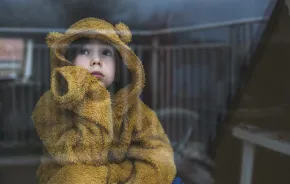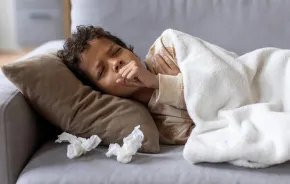
Many mothers I know will be getting flowers, pancakes and precious homemade cards tomorrow for Mother’s Day. A few I know will also be receiving gift certificates to their favorite spa and shoe store, or a new book and the promise of peace and quiet while she reads it.
I even know one superbly lucky mom who receives a hall pass to her favorite pub, where she will go, kid-free, to relax and nurse her favorite beer.
Gifts are nice, absolutely, and cards and hugs from our darling children — even better. But a lot of moms I know would like something more for Mother’s Day, something that lasts beyond one Sunday in May and can heal far more than a much-needed beer at the end of a tough week.
They want an end to the gun violence that threatens our children and families every single day in this country.
We’re enraged, right? We are sick of the domestic violence and the loose safety laws and the “accidents” and the tragedies. We’re back pushing hard every day against any more gun violence, right?
Well, memories are long, but life is busy. We let it slide. Because it’s hard. It’s hard to deal with, the fragility and unpredictability of life. The fear for our children’s safety. The overwhelmingness of it.
It’s easy to forget, to think that gun violence won’t affect us, that it’s not something “we really have to deal with.”
But it is. Remember Café Racer? Aurora? Newtown? I could keep going, of course. It could fill the whole page.
Yet somehow, between the tragedies that shock us, that make us hold our children a little tighter for one, two, three weeks after they occur, we are able to forget.
Some of us. For others, the fear and anger and threats don’t fade. Those are the ones we need to listen to, especially on Mother’s Day.
We need to listen to people like Cheryl Stumbo, who on July 28, 2006 was working at her job at the Jewish Federation of Greater Seattle when gunman Naveed Haq burst into the building and shot six women, killing Pamela Waechter.
“The guns are in the closet and the whole topic is in the closet,” Stumbo said when I spoke to her this week.
“A lot of people are afraid to talk about it, it’s a taboo subject. They don’t want to out their family members who have guns. We don’t ask other people if they have guns in the home. It’s like we’re afraid we’re going to violate someone’s privacy more than we want to ensure our kids’ safety. We don’t talk about it like we talk about other dangerous things, like keeping poison out of the hands of children. Why?”
In the years after being shot, Stumbo just kept busy, going through her life and not doing any public advocacy around the issue of guns. But when shooting tragedies occurred, she says, it took her back to what she had experienced.
“I’d be so devastated, I’d see it on the news, and stay on my couch for a week, crying.”
Then the Newtown school shootings happened. This time she was upset, “but suddenly I had this resolve. I knew this was the work I had to do.”
She is starting a social justice group at her church and is chairing a table at the Washington Alliance for Gun Responsibility luncheon May 30. She wants us to keep gun violence at the front of our minds, and to act.
“I understand people need to have them for protection or hunting or sport. But when you have kids around it makes sense to really be cautious,” she said. “Teenagers say it all the time, they have this belief they’re indestructible. I think we carry that on with us as adults.”
Someone else we should listen to: Lori Pender, whose extended family lost a 12-year-old member to suicide with a gun Pender’s family had no idea the girl had access to.
Pender traveled to Olympia this session to testify for proposed gun reforms. (It was a mixed year in Washington State: The Legislature passed House Bill 1612, which requires offenders convicted of firearms-related felonies to register and be added to a database of firearms felons maintained by the Washington State Patrol. But House Bill 1840, which would have protected victims of domestic violence by requiring a person found to be a credible threat to their spouse or partner to surrender their weapons, did not move forward. Also this session: 1588, the Universal Background Checks Bill, was defeated.)
Pender wants parents to think, really think, about whether their child might have access to guns. Not just when a tragedy occurs in our schools or community, but think about it all the time until things change and our kids are safer. Like Stumbo, she wants the conversation to move out of the closet.
“Why should it be legal to have unlocked, loaded guns in homes where there are children?” Pender wants to know.
In 2009, an estimated 6,000 children in King County alone lived in homes where firearms were stored loaded and unlocked, and 44 percent of households in Washington State have a gun. A number of states, but not Washington, now have "child-access prevention" (CAP) laws. These laws lower the rate of unintentional shootings and suicides of children.
“There are people who are arguing that this kind of law is an infringement, and it’s really hard to believe. It’s a dangerous weapon, be responsible with it. CAP laws work in other states,” Pender said.
Here’s another thing to think about it: Protecting our kids from violence involves much more than just gun reform.
A propensity toward aggression and violence can begin in babyhood and is tied directly to our kids’ media diets.
The science linking violence in films and video games isn’t new (although evolving iterations of ever-more violent games are), says Dr. Dimitri Christakis, George Adkins Professor of Pediatrics at the University of Washington and director of the Center for Child Health, Behavior, and Development at Seattle Children’s Research Institute. “The link between screen violence and real world aggression is as definitive as the link between cigarette smoke and cancer.”
Yet as a nation of parents we still don’t fully get (or want to deal with) the connection between screen violence and real-life aggression.
More and more, doctors are beginning to realize that in order to keep kids healthy and safe, they need to tackle the issue publicly and with their patients. But it's a challenge. In 2011 a California law banning the sale of some games to minors, which sought to treat violent and sexually explicit video games as apart from First Amendment protections, was deemed unconstitutional by the U.S. Supreme Court.
Of course not every kid who plays Call of Duty or Grand Theft Auto will commit gun violence, indeed most will not, says Christakis. But studies have shown kids who consume violent media subsequently exhibit more hitting, kicking, verbal abuse and less cooperation, agreeability and willingness to compromise than those who don’t. And that’s just in childhood.
Those kids can grow up to be more aggressive young adults and adults.
Think your child isn’t consuming violence?
“Children imitate even good guys being violent. In fact, good guys being violent are part of the problem,” said Christakis. “Children don’t distinguish between Lex Luthor, the arch enemy of the world, and the boy who took their swing.”
One too many rounds of a violent game won’t advance to gun violence in most cases. “But it’s on the spectrum. To deny it’s not contributory is ludicrous,” said Christakis. “As Adam Lanza went from room to room in that school, he’d drop his magazine, even though it still had shots in it — why? It turns out that’s a strategy you employ in these first-person shooter games because if you go into a room and run out of bullets, you’re dead. So you preemptively reload.”
So, now do you believe it could be you or your kids?
What can we do?
We can get involved. Moms Demand Action is a grassroots nationwide group started in the wake of the Sandy Hook tragedy: Their model is loosely based on Mothers Against Drunk Driving and they already have over 100,000 Facebook 'likes' nationwide. You can join, donate, send an ecard to moms you love right now, email or Tweet to Congress, and get involved. And attend the Mother's Day Rally in Seattle with your family.
The Washington Alliance for Gun Responsibility is another local group that came about in the wake of Sandy Hook. According to leaders, it is poised to start a petition for universal background checks in June, with hopes of getting an initiative for the 2014 legislative session. They'll need 300,000 signatures by the end of the year. You can contribute to the effort, join in and have your voice heard.
We can also help by bringing to light the conversation about youth suicide in our nation. More information is available here at this fantastic resource.
And we can further the conversation about our kids' media diets, and about how accepting a culture of violence in our society, in any manner, will mean a steep price to pay later on. Common Sense Media is a wonderful resource for helping determine whether the movies, books and games your child craves are really appropriate.
Finally, we we can listen to what people like Cheryl Stumbo want us to remember:
“One of the best gifts that families can give their mothers this Mother’s Day is to make sure that if there are guns in the house they are secured and stored safely.”
Amen.











